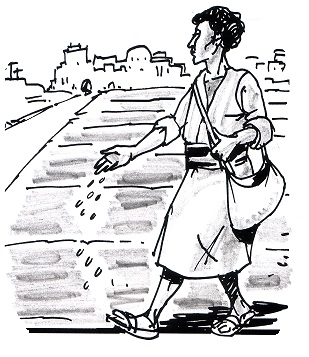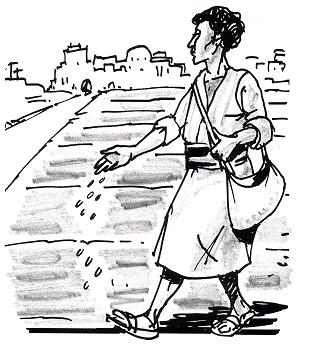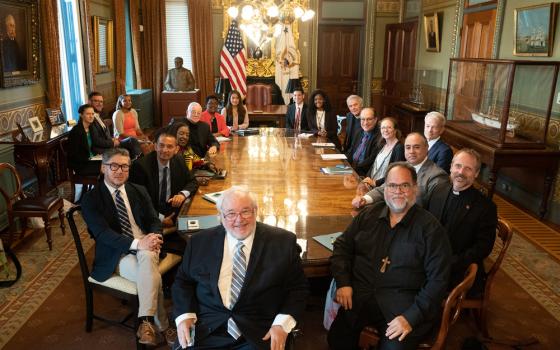

“A sower went out to sow” (Matt 13:3).
Fifteenth Sunday in Ordinary Time
Isa 55:10-11; PS 63; Rom 8:18-23; Matt 13:1-23
The Parable of the Sower is the first parable in Matthew’s large collection of remarkable stories of Jesus because it was a story about parables. Jesus was a sower of parables, each one a small seed designed to germinate in the imagination of a hearer, offering lifelong lessons about the relationship and interaction of God with Creation and with us as children of Creation.
Collections of sayings and stories must have been the basis for the earliest preaching. They may be the closest we come to the mind of Jesus, whose teachings were later adapted to fit the narratives and theological patterns of each Gospel. The original parables reveal a brilliant teacher able to summarize profound insights into simple images: a hidden treasure, a pearl of great price, salt, light and leaven, busines dealings, construction, weddings, lost sheep, lost coins and lost sons.
These small dramas and images answered a central question: What is the reign of God like? Behind this, the deeper mystery: What is God really like? Some parables were given artful form by the evangelists to apply them to the needs of the early churches. Luke’s “Prodigal Son” reveals a loving father who wants both his sons at the family table, sinners and the righteous together. Other parables were adapted and altered to judge enemies of the church or conflicts within the church, like the parables of the “Wheat and Weeds,” the “Vineyard,” and “Wedding Guests.”
The great blessing of the Parables for us now is not just to meditate on each one and look for personal meaning, but to imitate Jesus by finding parables in our own lives. We may do this already, for each time we describe our experience with a metaphor using “like” or “as,” or by comparing it to some natural process we are finding meaning by storytelling. A “sunrise after a long, hard night,” a “soaking rain after a long dry spell,” help us describe and explain our lives, and by doing this we are tapping into deeper ideas about life’s teachable moments and transcendent truths.
So, whether we are asking what kind of soil we are for the seeds of faith or just trying to plant a garden while dealing with hungry birds and squirrels, too much or too little shade, stony soil or weeds, we are in parable mode. If we have experienced labor pains or waited on “tip toes” ( one translation of Rom 8:22) for something wonderful to happen, we are using our imaginations to understand the longing of Creation and the human heart for God’s promises to come true.
Thinking and feeling in parables is a way to pray, to convey spiritual questions in imagery by drawing from our own memories. We meet God through our human experiences of longing, anxiety, hope and frustration. The way we know that the stories inspired by this way of encounter are from God is that divine parables always end in Good News. Adversity leads to hope, loss inspires determination. God inspires us to keep knocking, asking and seeking until we find our way.
Even though most of the seeds sown by the sower were lost, those that found good soil multiplied many times over to produce a real harvest. Hear then a parable. Let those who have ears to hear, listen, for parables are everywhere.
Advertisement









